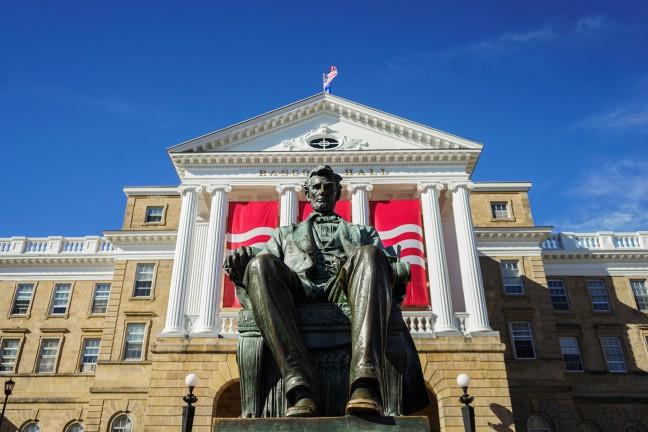University of Wisconsin Board of Regents President Andrew Petersen broke past precedent by including one student and no academic staff when he appointed the committee to identify the next UW System President.
Petersen appointed the committee following current UW System President Ray Cross’ retirement announcement. The committee, which will convene for the first time in December, is composed of four regents, a former regent, a student regent, two chancellors and a provost.
UW-Madison Academic Staff Assembly Chair Jenny Dahlberg discussed her disagreement with the choice to not include staff. Past committees tasked with selecting the next UW System President have all included students, faculty and academic staff members, Dahlberg said.
“[Academic staff] represent 10,000 people on this campus, that’s a lot of bodies and voices that really deserve the chance to be heard about what we need from leadership,” Dahlberg said.
In an email to The Badger Herald, Petersen said throughout the screening process there will be multiple opportunities for shared governance stakeholders like the ASA to give their input. Petersen also wrote that the persons chosen for the committee will keep the interests of students and staff in mind during the selection process.
One reason the committee is comprised of a smaller number of people is to make the search process more efficient, Petersen said.
“In a competitive environment where multiple state systems are actively searching for new presidential leadership, we need a small, nimble and dedicated committee comprised of board and academic leadership that represents diverse interests,” Petersen said.
Dahlberg said she believes that adding staff to the committee will not decrease efficiency or extend the timeline but will help the committee gain a better perspective of what the employees on campus need.
Rep. Katrina Shankland, D-Stevens Point, wrote a letter to the committee and spoke in an interview voicing concerns about the makeup of the committee.
“The very people who would benefit most from having a voice at the table — faculty, staff and students — are the ones deliberately being excluded,” Shankland said. “Sitting in a closed-door room as part of the search and screen committee going through resumes, going through interviews, is very different than a listening session where everyone gets to say a few words.”
Shankland said other state legislators have echoed her call to expand the committee and hopes that the committee will choose to add more members, which it can do at any time.
According to the University of Wisconsin System website, the UW System includes two doctoral universities, 11 four-year universities, 13 additional universities and the UW-Extension program. Petersen said all the members of the committee are highly accredited and serve with the interests of the entire UW System in mind.
“One of the most important responsibilities as regents is to set the direction for the UW System, including hiring leadership,” Petersen said.
In her letter to the committee, Shankland wrote that it is counterintuitive for a president to lead the UW System into a new era while excluding important voices from the conversation.
Dahlberg said the president regularly meets with shared governance committees to hear the issues staff and faculty are facing and that the president chosen may not know how to best help academic staff and faculty.
“No leader of our university system should want to start their new role with concerns from stakeholders because of the process by which they were selected and by which some stakeholders were excluded,” Shankland wrote.
The committee is also primarily made up of white people. According to the Milwaukee Journal Sentinel, Edmund Manydeeds III appears to be the only person of color on the committee. Manydeeds is a regent and a member of the Standing Rock Sioux Tribe.
Dahlberg said many of the academic staff feel that their voices will go unheard in the process.
“I think it’s rather short-sighted of them to exclude the voices of the people who make the university run,” Dahlberg said. “At least in Madison’s case, the academic staff are the largest number. They are everything from advisors to researchers to administrators to teachers. It’s really unfortunate because they’re the ones who are going to be in tune with the issues that students are facing.”


